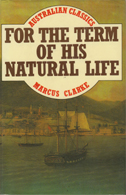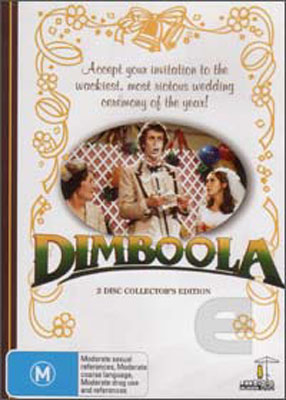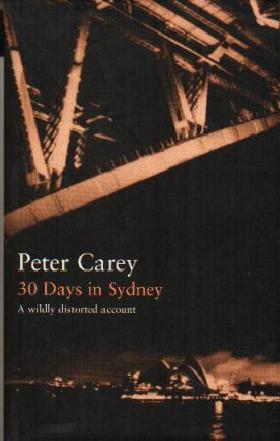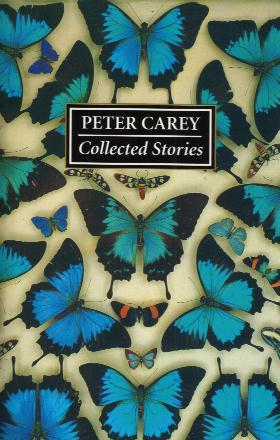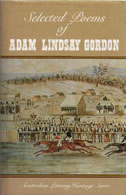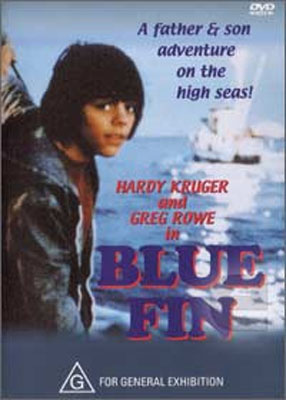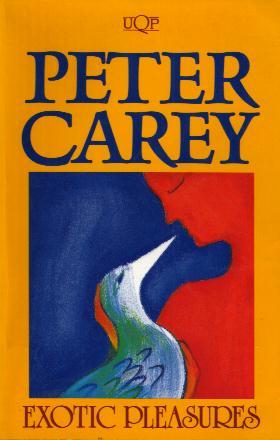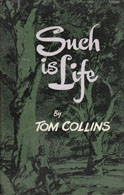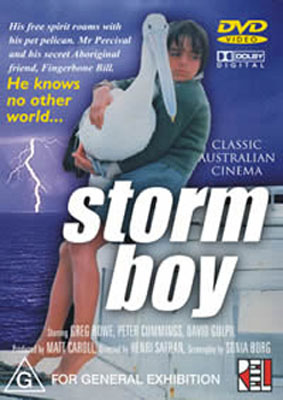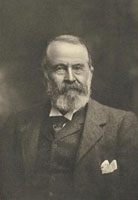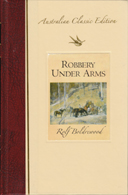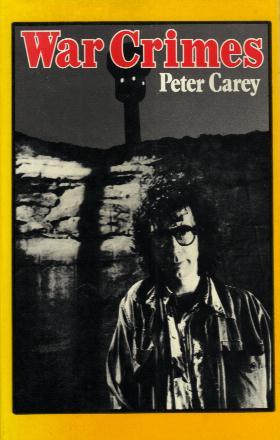Now, this ain't a loocid story, but it 'as a 'igh-class moral.
I can mop up all the praises hurled at me by them it soots.
An' with them it don't appeal to I don't seek to pick a quarrel;
But I pause to say in passin', that I hold 'em brainless coots.
Well it mighter been a nightmare or it mighter been a vision.
Why or 'ow or where it 'appened, or 'ow long or short ago --
These are items I am shy of; but I've come to this decision:
It all 'appened some'ow somewhere, an' I'm tellin' all I know.
With this lengthy introduction -- which I'm trustin', inter-arlier,
Will be paid for, cash, at space rates, to assist a bard in need --
(For the lot of jingle-writers in our own sun-kissed Australier
Ain't so sunny as it might be, on the 'ole) -- I'll now proceed.
There was me -- who's most important, bein' here to tell the story --
There was Kodak's gloomy lodger, an' a 'Enry Lawson bloke,
Also E.J. Brady's pirate, full of husky oaths and gory,
An' a plump and pleasin' female from an Ambrose Dyson joke.
Likewise with us at the geth'rin' was Grant 'Ervey's Strong Australian.
An' a curly Souter peach; it was a treat the way she dressed;
An' a Louis Esson dryad, sparsely gowned an' somewot alien
(For which rhyme I point to many precedents amongst the best).
Also there were many others, far too noomerous to mention;
Bron men, somewot out of drorin', but exceedin' terse an' keen;
Yeller pups, George Reids an' dry dogs -- but it is not my intention
To innoomerate the items in a Chris'mas BULLYTEEN.
Where we were I 'ave no notion, tho' it mighter been Parnassus.
Any'ow -- but I'm forgettin' one small guest that came unbid;
Standin' in a corner sulkin', seldom speakin', 'cept to sass us,
Rubbin' 'is thin calves together, stood a Norman Lindsay kid.
But the main point of this story is that all of us was stony;
An' we needed money badly for to give ourselves a treat.
An' we wanted to present the editor with somethin' toney
In the shape of clubs or rest cures, just to try an' get 'im sweet.
"Mates, alas, there's nothin' left us," ses the gloomy Lawson native.
"We can only look for other castaways from other wrecks."
When the Wild Cat, on 'is windlass, scratched 'is left ear contemplative
An' remarked, "I think I've gotter scheme to land the fatted cheques.
"We are valuable assets," 'e went on, in tones finanshul.
"We are also reproductive, an' I think I see a chance
To relieve the present tension, an' secure a sum substanshul,
Which all comes of my acquaintance with low schemes an' 'igh finance.
"If we borrer twenty thousand on our natcheral resourses --
On all BULLETTEEN creations -- it will purchase many beers.
We can maffick, an' pay int'rest -- which is a triflin' thing of course is --
With a sinkin' fund extendin' over ninety-seven years."
Well! To say we was elated is to put the matter mildly.
I can still 'ear Brady's pirate yellin', "Bite mates, let us bite!"
I can still see Kodak's lodger kick 'is slippered feet, and wildly
Try to borrer two-an'-sixpence on the spot....But oh, that night!
"Where do I come in?" a squeaky voice arose above our shoutin',
Rose an' squeaked, shrill an' insistent, over all our joyous din.
'Twas the kid, the Lindsay youngster, standin' in 'is corner poutin'.
"Take a pull, yer bloomin' wasters! Blime, where do I come in?
"Nice lot, ain't yer? Garn, yer loafers! Let the comin' generation
Suck their thumbs an' watch yer jag, an' 'ump the bill when it comes due;
Slave an' work when you 'ave snuffed it. An' you look for veneration
From us kids! Why, blime, who could venerate the likes of you?
"As THE BULLYTEEN been preachin' years an' years an' years for nuffin'
On the vice of floatin' loans an' gettin' in the 'ands of Yids?
Playin' up yer borrered money! Eatin' drinkin', swillin', stuffin'!
Then, when you 'ave chucked a seven, what a picnic for the kids!"
Spare me! You could 'ear a pin drop when that little kid 'ad finished.
We just 'ung our 'eads in silence, till the Strong Australian spoke.
(Brady's pirate tore 'is whiskers, with 'is lust for jags dimished;
An' the Souter peach was sobbin' on the breast of Lawson's bloke.)
"Comrades," ses the Strong Australian, "see our star all glory litten!
Heed the ancient, beer-stained story! Heed the warning of the kid!
Lo, the way of ink's before us! Ringing verses shall be written
In which I shall figure largely. Yes, I shall." An', 'struth, 'e did!
Ses the pirate, with the remnants of 'is whiskers fiercely bristlin'.
"In the war of life together we must take each wound and sear."
"Now, we care not where we're bound for," ses the Lawson native, whistlin'
For 'is dawg. "It's up Matilda." As for me, I ses, "'Ear, 'ear."
As I sed, this yarn ain't loocid, but its moral should not fail yer.
I shall ne'er fergit that ev'nin' or the voice above the din.
It's the cry of all the kiddies, born an' unborn, in Australyer,
When we flash our borrered millyuns: "Blime, where do we come in?"
First published in The Bulletin, 20 May 1909
